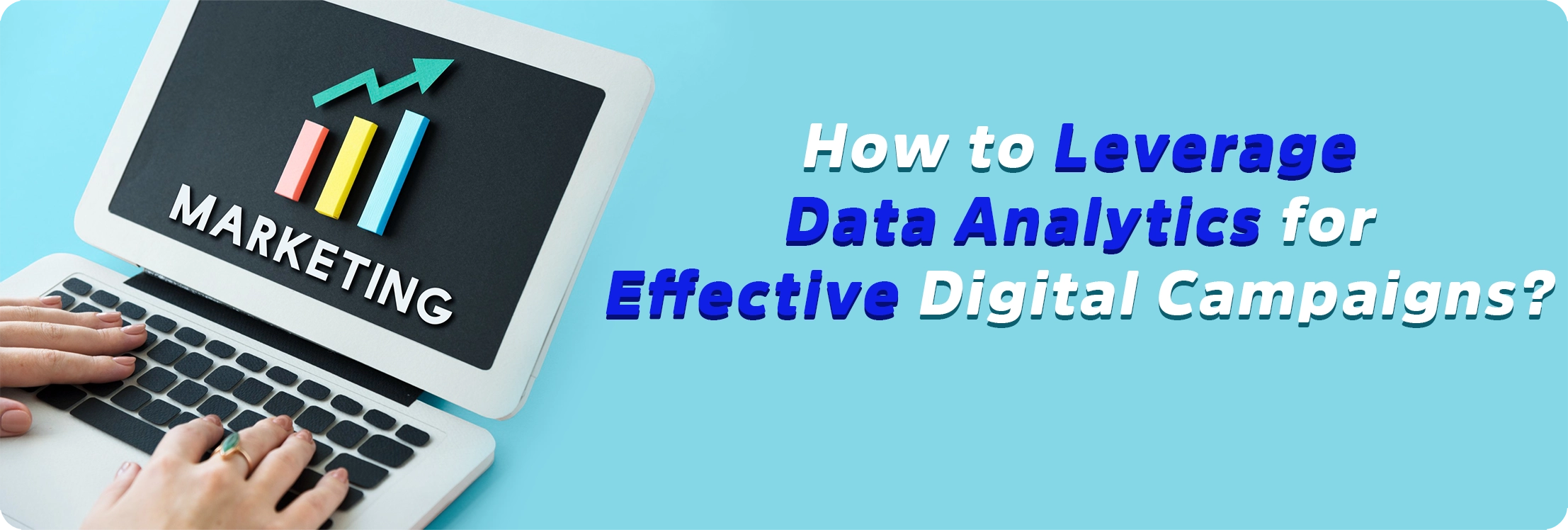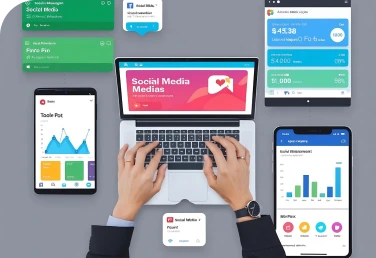
Data is the driving force behind successful marketing campaigns. With an overwhelming amount of information available, businesses can gain valuable insights into customer behavior, preferences, and trends. However, simply collecting data is not enough. To truly benefit from data, marketers need to analyze it effectively and apply these insights to their digital campaigns. Here’s how businesses can leverage data analytics to create more effective digital campaigns and maximize their marketing impact.
1. Understanding Your Audience
One of the most critical aspects of any marketing campaign is knowing your audience. Data analytics allows businesses to gain deep insights into who their customers are, what they need, and how they behave online. By analyzing demographic data, interests, and browsing habits, marketers can create more targeted and personalized campaigns.
For example, analyzing website traffic can help you understand which segments of your audience spend the most time on your site or interact with specific content. This insight allows you to craft messages tailored to different audience groups, ensuring that your campaigns resonate with the right people.
2. Improving Targeting with Behavioral Data
Behavioral data plays a crucial role in refining digital campaigns. By tracking user actions across your website, social media platforms, and other digital channels, you can identify key patterns in customer behavior. This includes how they navigate your site, which pages they visit most frequently, and where they drop off in the buying process.
Armed with this information, businesses can fine-tune their marketing strategies. For example, you can retarget users who have abandoned shopping carts with personalized offers or discounts. Behavioral data also allows marketers to send targeted ads to users based on their previous interactions with your brand, improving the overall relevancy and effectiveness of the campaign.
3. Optimizing Campaign Performance
Data analytics is essential for monitoring and optimizing the performance of your digital campaigns. Tools like Google Analytics, Facebook Insights, and other platform-specific analytics tools provide real-time data on key performance indicators (KPIs) such as click-through rates (CTR), conversion rates, and return on investment (ROI).
By analyzing this data, marketers can identify which aspects of a campaign are working and which are not. For instance, if an ad is generating high traffic but low conversions, the analytics data may reveal that the landing page needs improvement. By continually analyzing and adjusting campaigns based on performance data, businesses can ensure they are maximizing their marketing budgets and achieving better results.
4. Predictive Analytics for Future Campaigns
One of the most powerful tools in data analytics is predictive analytics, which allows businesses to forecast future trends and behaviors based on historical data. By leveraging machine learning and advanced algorithms, predictive analytics can help marketers anticipate customer needs and preferences before they even take action.
For example, by analyzing past campaign performance, customer behavior, and market trends, businesses can predict which types of content or offers are likely to perform well in the future. This allows marketers to stay ahead of the curve and launch campaigns that are more likely to succeed based on data-driven predictions.
5. Personalization and Customer Segmentation
Personalization is a key driver of success in digital marketing, and data analytics makes it possible to deliver highly personalized experiences to your customers. By segmenting your audience based on their behavior, preferences, and demographic information, you can create customized messages that speak directly to each group.
For instance, an e-commerce company could use data to send personalized product recommendations to customers based on their browsing history or previous purchases. This not only enhances the customer experience but also increases the chances of conversion. Personalized marketing driven by data analytics can significantly improve engagement and foster stronger relationships with your audience.
6. A/B Testing for Continuous Improvement
A/B testing, or split testing, is a valuable method for optimizing digital campaigns. By running two or more variations of an ad, email, or landing page, marketers can test which version performs better in terms of engagement, conversions, or other desired outcomes.
Data analytics plays a critical role in A/B testing by providing clear metrics that indicate which version of the test is more effective. For example, you can compare CTRs, conversion rates, or bounce rates to determine the winning version. This allows you to make data-driven decisions and continually refine your campaigns for better performance.
7. Tracking Social Media Engagement
Social media platforms provide a wealth of data that businesses can leverage to enhance their digital campaigns. Analytics tools on platforms like Facebook, Instagram, and Twitter allow you to track engagement metrics such as likes, shares, comments, and follower growth.
By analyzing social media engagement data, marketers can identify which types of content resonate most with their audience and adjust their strategies accordingly. For example, if video content consistently generates higher engagement than static images, you may decide to focus more on video in future campaigns. Social media analytics also helps in identifying brand advocates and influencers, who can amplify your campaign’s reach.
8. Measuring Return on Investment (ROI)
At the end of the day, the success of any digital campaign comes down to its ROI. Data analytics is crucial for measuring and optimizing the ROI of your marketing efforts. By tracking key metrics such as cost per click (CPC), cost per acquisition (CPA), and revenue generated from each campaign, businesses can gain a clear understanding of how effective their campaigns are.
Data-driven insights allow you to allocate your budget more efficiently, directing resources to the channels and campaigns that deliver the best ROI. This ensures that your marketing investments are delivering maximum value and contributing to the growth of your business.
Data analytics is a game-changer in the world of digital marketing. By leveraging data insights, businesses can create more targeted, personalized, and effective digital campaigns that resonate with their audience. From understanding customer behavior to optimizing performance and predicting future trends, data analytics empowers marketers to make smarter decisions and drive better results. In a data-driven world, businesses that embrace analytics will gain a competitive edge and see greater success in their digital marketing efforts.
05 October 2024 / Digital Marketing
In today’s rapidly evolving digital landscape, social media marketing has emerged as a cornerstone for business growth and brand visibility. With bi...
05 October 2024 / Website Development
Website development is a crucial process in today’s digital world, where having an online presence is essential for businesses, organizations, and i...
05 October 2024 / Website Development
As technology advances and consumer behavior evolves, having a responsive website is no longer optional for businesses—it’s a necessity. In 2024, ...


